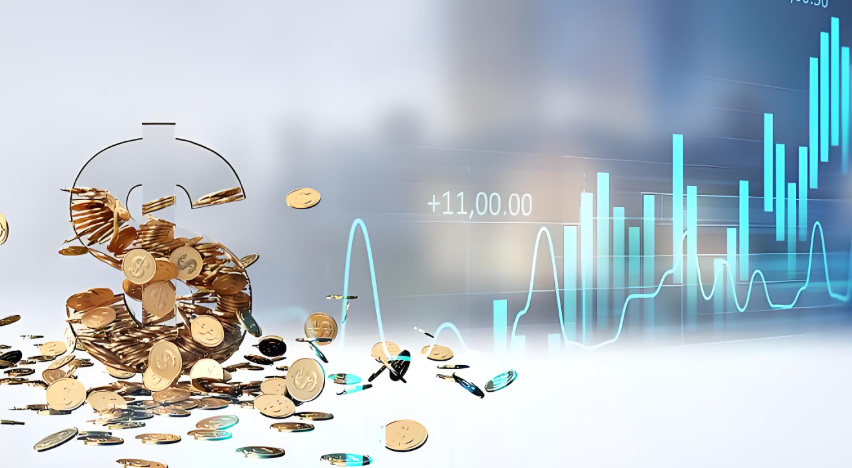Soaring Long-term Inflation Expectations in the U.S.
Advertisements
Recent data released on Friday by the University of Michigan has unveiled an unsettling forecast from consumers regarding inflation in the United States. The final numbers from February indicate that consumers expect prices to rise at an annual rate of 3.5% over the next five to ten years, marking the highest level of inflation expectations since 1995. This surge in anticipatory inflation comes at a time when consumer confidence is notably low, creating a complex economic scenario that economists are closely monitoring.
The University of Michigan's consumer confidence index for February settled at 64.7, falling short of expectations which were set at 67.8, and representing a decline from January’s figure of 71.1. This downtrend is mirrored across various indices; for instance, the current conditions index came in at 65.7 against an expected 68.5, while the expectations index concluded at 64, further indicating widespread concerns among consumers. Perhaps most troubling is the consistent decline in confidence across different demographics, regardless of factors such as age, income, or wealth, suggesting a pervasive anxiety about the economic outlook.
Of particular interest to market observers are the inflation expectations themselves. For one-year inflation expectations, the final figure for February reached 4.3%, the highest since November 2023, while the five-year inflation expectation finished the month at 3.5%. This represents not only a significant increase — the largest rate of change since May 2021 — but underscores a notable shift from previous years when expectations were comparatively stable, fluctuating between 2.9% and 3.1%. The troubling rise in long-term inflation expectations now surpasses levels seen prior to the COVID-19 pandemic, suggesting that consumers are bracing for a reality where rising prices become the norm rather than the exception.
The consumer confidence index saw an upturn last year, buoyed by optimistic expectations regarding U.S. government policies. However, since the beginning of this year, this index has retreated, largely due to concerns over inflationary pressures linked to tariffs. The possible repercussions of ongoing trade conflicts are influencing consumers' expectations for future pricing, leading to a renewed focus on inflation amid significant uncertainty within the market.
This complicated economic backdrop suggests that tariffs and their potential impact on consumer prices are becoming increasingly significant variables that may inform Federal Reserve policy decisions. Officials at the Fed have publicly stated their intention to refrain from rushing into any further interest rate cuts, attributing this caution to a stagnation in the decline of inflation. With long-term inflation expectations soaring, this could signal troubling warnings concerning broader economic stability.
The tense situation harkens back to June 2022 when inflation expectations documented by the University of Michigan spiked unexpectedly, prompting the Fed to engage in aggressive rate hikes aimed at curbing inflation. These measures resulted in a gradual easing of inflationary pressures, alleviating fears of rampant inflation; however, the recent uptick in inflation expectations presents the Fed with complicating factors for their policy choices moving forward.

Joanne Hsu, the director of the consumer survey at the University of Michigan, articulated the implications succinctly: “If consumers continue to increase their spending to avoid the expected price hikes in the future, these heightened inflation expectations could become self-fulfilling.” This sentiment underscores the cyclical nature of consumer behavior and inflationary trends, creating a feedback loop that could perpetuate economic anxiety.
Moreover, a startling indication of sentiment among consumers is illustrated by the fact that over half of respondents expect the unemployment rate to rise over the next year—the highest proportion since 2020. This sense of foreboding extends to perceptions of purchasing conditions for big-ticket items; assessments of willingness to purchase durable goods have plummeted by 19%, as many worry about imminent price increases stemming from tariffs.
The figures related to personal financial expectations and short-term economic outlook both fell by nearly 10% in February, while long-term economic projections decreased by approximately 6%, reaching the lowest level since November 2023. The sharp decline in consumer confidence has predominantly been driven by diminishing sentiment among Democrats and independent voters, illustrating stark disparities in inflation expectations across political affiliations.
The financial landscape in the U.S. is rife with conflicting signals. Despite enduring inflationary pressures and growing fears regarding rising prices, U.S. Treasury yields have exhibited unexpected declines. Specifically, the yield on the 10-year Treasury note dropped significantly, hitting a daily low of 4.4526%, while the two-year Treasury yield followed suit, seen at a daily low of 4.2278%. Concurrently, the Markit PMI data indicated a deeper malaise within the services sector, with February's PMI unexpectedly slipping into recessionary territory. This raises questions about the trajectory of the overall economy and adds layers of uncertainty to the bond market.
In essence, the current economic landscape in the U.S. is characterized by a duality of inflationary expectations and a decline in confidence—a precarious balance that is reflective of larger global economic trends. The reactions of consumers, investors, and policymakers alike in the coming months will be pivotal, as the nation grapples with these intersecting challenges. Ultimately, the evolving situation will require a deft navigation through the complexities presented by rising inflation expectations, fluctuating consumer confidence, and the broader economic implications of policy decisions made in response to these troubling trends.
post your comment